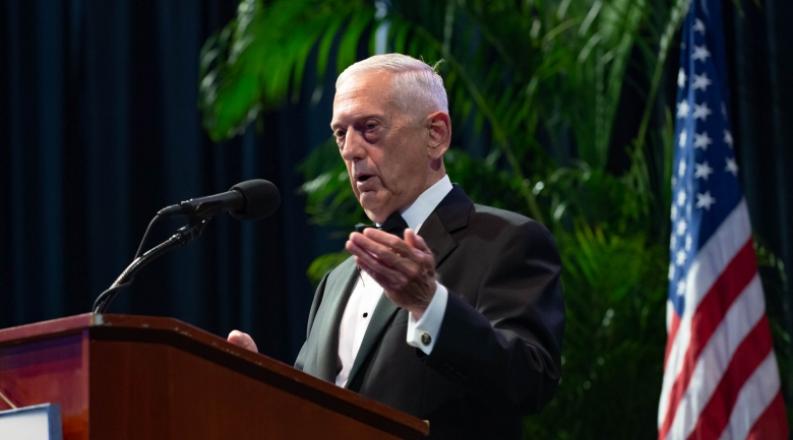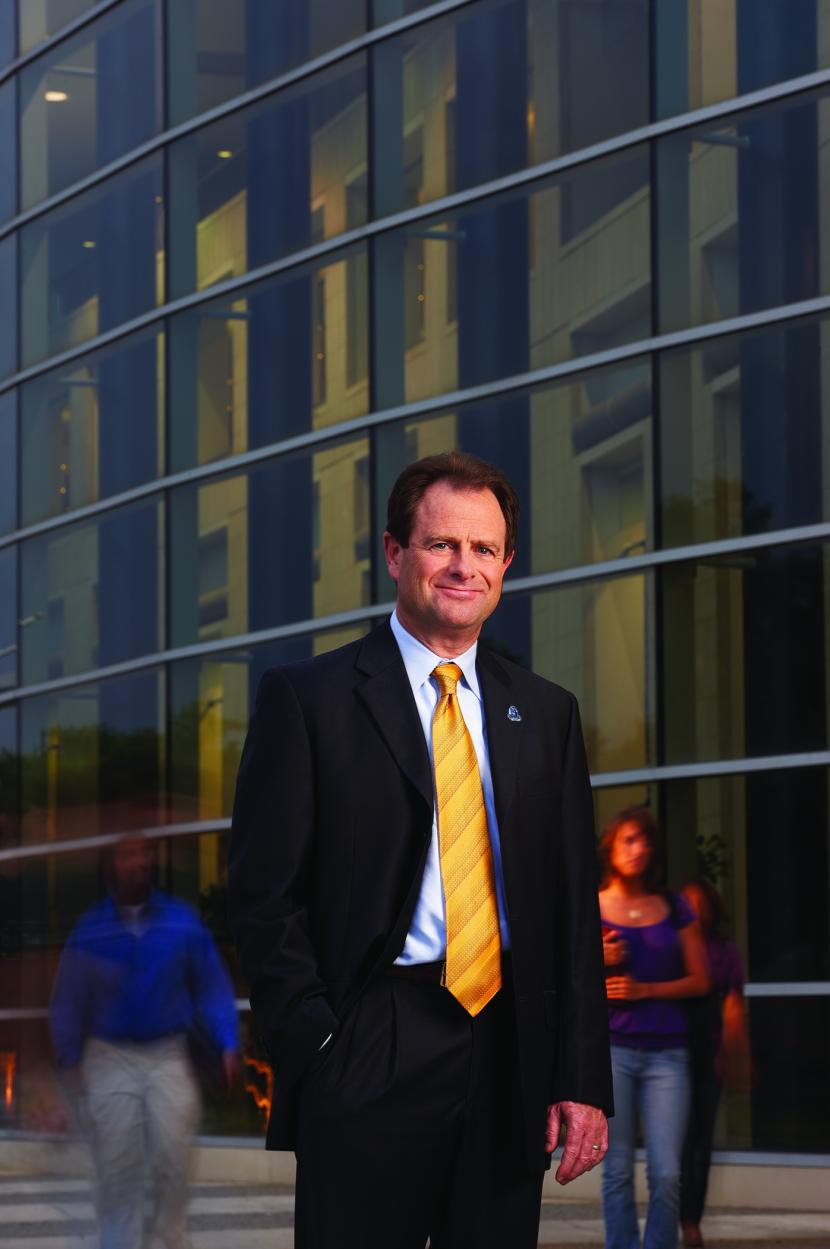"On an international basis, not much happens if America doesn't lead," James Mattis said. Photo Chuck Thomas/ODU
By Joe Garvey
The United States' response as the COVID-19 pandemic unfolded provided an "abiding lesson" why America cannot shirk its role as a leader in addressing global challenges, former U.S. Defense Secretary James Mattis told an audience at Chartway Arena at the Ted Constant Convocation Center on Tuesday night.
"On an international basis, not much happens if America doesn't lead. If Americans don't step forward and lead and lead and lead, most nations go off in their own direction," he said. "No one else has the capacity; no one else has the trust."
The Norfolk Forum, in partnership with Old Dominion University, sponsored the address by Mattis, a retired four-star general who served in the Marines for more than 40 years and was the first secretary of defense in the Trump administration. He is the author of "Call Sign Chaos: Learning to Lead," a No. 1 New York Times bestseller published in 2019.
Nearly 550 people were at Chartway Arena, and an additional 300 viewed the speech virtually.
ODU Athletic Director Wood Selig delivered introductory remarks from President John R. Broderick, who was unable to attend.
"Gen. Mattis is no stranger to ODU," Selig said. "In 2009, he spoke with students in ODU's graduate program in international studies. As he has elsewhere, he impressed our students and our faculty with his insights and his candor. ... With ODU's deep connections to the military, it's a natural fit to have Gen. Mattis on our campus."
In addition to the importance of America's role as a global leader, he stressed the critical part NATO plays, the importance of democracies and their allies, and an emphasis on diplomacy supported by military strength. "I've never seen peace being rewarded or being strengthened by weakness," he said.
He cited a number of examples of how American led the world in meeting global challenges: during World War II and the rebuilding of Europe and the Axis countries; the victory in the Cold War; the liberation of Kuwait; the recovery from the Great Recession; President George W. Bush's AIDS initiative in Africa, which "saved hundreds of thousands of lives," and mitigating the Ebola crisis.
Mattis said North Korea, Russia and China are our most formidable threats in the short and long term. Alluding to the challenges that democracies are facing here and abroad, he said dictators and autocrats "feel the wind is at their back." But he believes in the resiliency of democracies.
"When democracies stand together, we don't fail," Mattis said. "You attack democracies at your peril. We're not made of cotton candy."
Related News Stories
President Broderick Named 2021 Darden Award Winner by CIVIC Leadership Institute
The organization honors one individual and corporation annually who demonstrate “exceptional leadership in the pursuit of regional cooperation.” (More)
Augmented Reality Brings Barry Art Museum Collection To Life
The gallery launches interactive 3D models of selected works. (More)
ODU’s OpenSeas Technology Innovation Hub Helps Launch Virginia Offshore Wind Landing
The venture, which includes the Hampton Roads Alliance and the Virginia Department of Mines, Minerals, and Energy, aims to position Hampton Roads as an innovation and supply chain hub for the offshore wind industry. (More)






